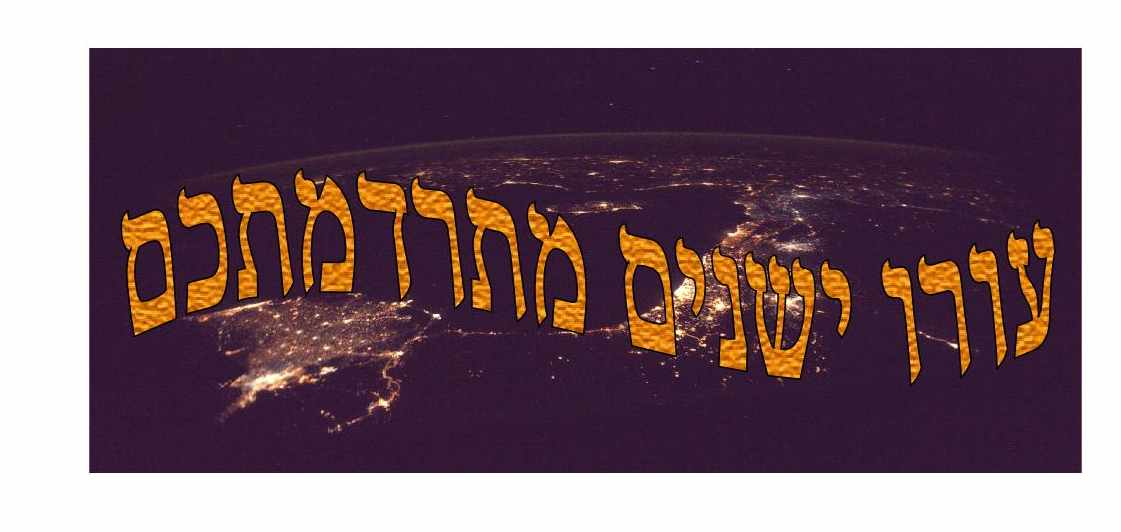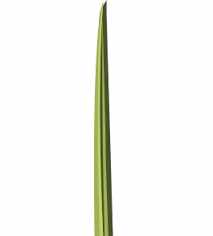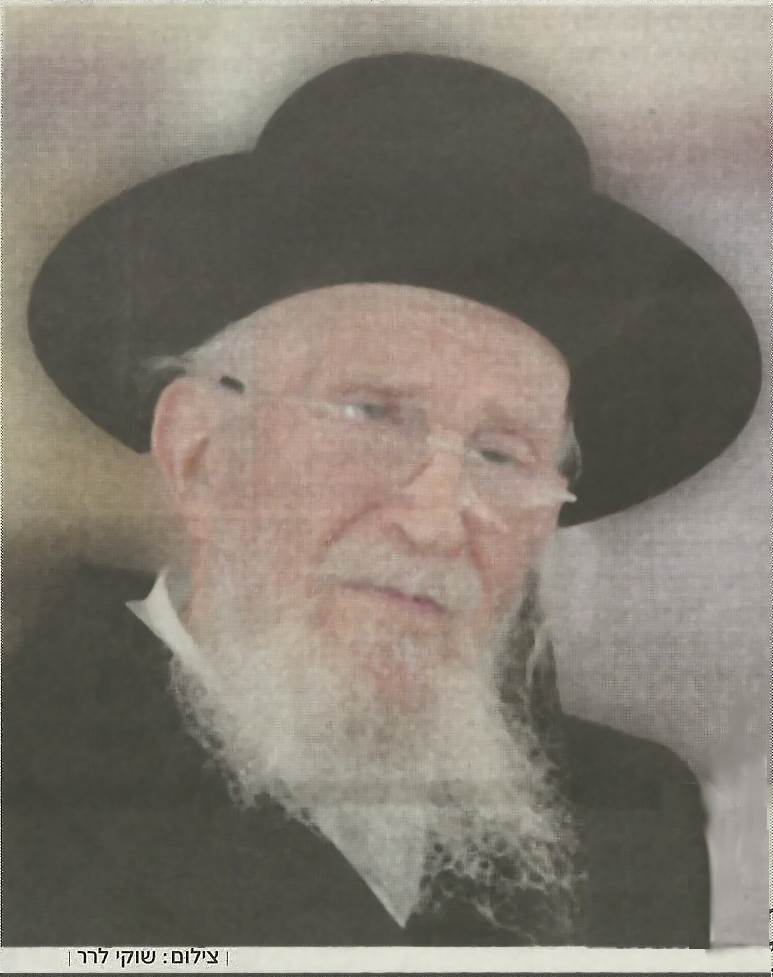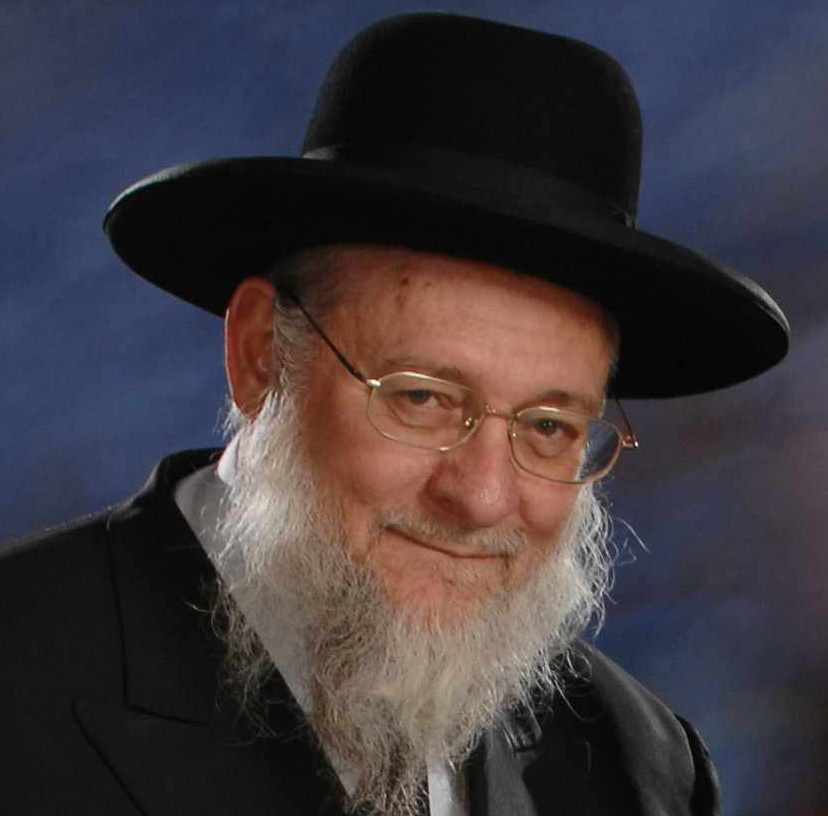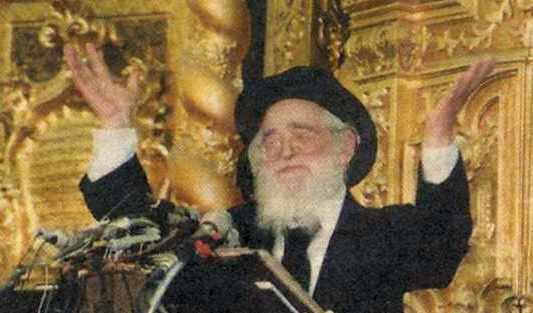  |
|
| |||||
This Google Custom Search looks only in this website. The Story of the Der'i Lulav
All those bnei Torah who are halachically meticulous about the arba haminim today, especially the young ones, are not aware of the difficulties which their counterparts encountered thirty and forty years ago in obtaining a mehudar lulav according to the specifications of the Rema, without a kora, a closed and sealed to the top point, or an excellent, handsome looking esrog of impeccable lineage etc. And if today, the process of selection is not quite easy, in former times it was a real challenge. The same applies to finding perfect triplicate and fine hadassim.
All this has changed immeasurably for the good, thanks to those special Jews who toiled over many years, and with great effort, discovered these unique species. Year after year, they sought out the good groves and monitored their special care so that Jews at large, in Israel and abroad, could satisfy their desire for halachically deluxe arbaas haminim, A-1, Mehudar Alef Alef, which is a genuine description of taking this mitzvah to its ultimate state of perfection.
his youth, while studying in Yeshivas Chevron in Elul 5699, HaRav Michel Yehuda Lefkowitz wrote a letter to a friend:
"The atmosphere of Elul is predominant in our yeshiva; the realization and feeling of the upcoming Yomim Noraim is tangible. These are days of mercy and proximity of Jewry to Hashem, in the spirit of `I am to my Beloved and my Beloved is to me.' This opportunity of drawing close of Hashem is offered to every single Jew and it behooves him to take advantage of it.
"This is especially during this difficult time when there is tension in the world and it is on the brink of war. Who hasn't heard about the previous war which all but destroyed the world, when thousands of families were plundered and destroyed? We haven't even had time to rest and recover from that war, and now we hear the harbinger of a new war in the offing.
Rosh Hashanah is designated as Yom Teru'oh, which theTargum translates Yom Yelalah, a day of weeping. Although there are various opinions whether one should actually cry on Rosh Hashanah, the Torah instructs us to simulate crying through the shofar, and the Netziv explains that Rosh Hashanah is also Zichron Teru'oh, a day not merely to sound the shofar, but to contemplate and comprehend the concept of this crying. Therefore in preparation for Rosh Hashanah, it behooves us to gain an insight into the motif of the day.
The gemara relates that on each Yom Tov which corresponds to a period of judgment for a specific commodity, we are commanded to bring a portion of that commodity as a sacrifice in order to receive G-d's blessings on the remainder. Hence, on Pesach, when we are judged on grain, we bring the Omer sacrifices from barley grain. And on Succos, when we are judged for rainfall, we perform the nisuch hamayim, the water libation on the alter.
In this vein it follows that on Rosh Hashanah, when man himself is judged, that we should bring of ourselves as a sacrifice. And in fact, this is the requirement of the day.
It is now only a few days before Rosh Hashanah, before Yom Hadin, our day of judgment. We are all going to be judged, but it will not be an ordinary judgment. The judgment will be made by the King of Kings. It would be natural for us to be overwhelmed by fear of our judgment - eimas hadin - and to be doing all we can to emerge triumphantly. The fact is that, nevertheless, we are not doing proper teshuva. Why is this?
"When R' Yochonon ben Zakkai became [terminally] ill, his talmidim came to visit him. They found him crying. His talmidim said to him: `Light of Yisroel, pillar of the right hand [side], strong hammer! Why are you crying?'
...
This needs to be explained. Why did his talmidim ask him, "Why are you crying?" Did they not know that each person is destined to be judged before the Throne of Glory, with two possible outcomes? It should have been obvious that someone in such a condition, who understands that he will soon be judged by the Creator and does not know what his judgment will be, would be worried, and would cry with fear.
From Our Archives
Malchuso Bakol Mosholoh -- His Kingdom Will Rule All
by Mordecai Plaut
Despite all the high-power, high pressure, high technology of the modern world, our observance of Rosh Hashanah (and most of the mitzvos of the Torah) is pretty low-tech. We still take a ram's horn and blow it as commanded in our 3000-year- old Torah, and we spend much of the day in prayer focusing on Malchuyos, Zichronos and Shoforos, as codified by Chazal more than 2,500 years ago. We rejoice and enjoy our yom tov meals as charged by Nechemiah (8:10).
With all the changes that have taken place in the past century or so, the way we spend our day of Rosh Hashonoh is substantially the same as the way our community has spent it for thousands of years, even outwardly. We perform the same mitzvos, pray the same prayers, eat the same kind of food and, importantly, hopefully think the same thoughts. We should feel our solidarity with generations of ordinary, simple, good Jews whose Rosh Hashonoh was the same as ours.
Days Of Awe: A Shmuess for Rosh Hashanah
by HaRav Sholom Schwadron zt'l
Our Name for This Period
The Yomim Noro'im -- Days of Awe -- and the period of mercy and forgiveness are almost upon us. Let's think what the term "Days of Awe" means. There must be a good reason why all of Klal Yisroel refers to these days by this name. It appears that the name arises from the special quality of these days and their ability to impart yiras Shomayim.
Chazal tell us that everything is determined by Heaven except for the level of a person's yiras Shomayim. The posuk (Devorim 10:12) says, "And now Yisroel, what is Hashem asking of you but to fear Hashem . . .?" In other words, a person has no power to do anything whatsoever independently. The only thing that is really in his power to determine is the level of his yiras Shomayim.
Let me tell you about one of the times that I went to see the Brisker Rov zt'l, and I asked him about the posuk (Devorim 5:10-11), "When Hashem brings you to the land . . . to give you . . . and houses filled with everything good, that you did not build . . . vineyards . . . that you did not plant . . ." Later however, the Torah says (9:17), "And you'll say in your heart, `My strength and the might of my hand have acquired all this wealth for me.' "
|
|||||




.jpg)
